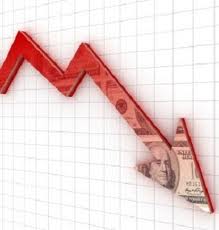After the worst financial crisis since the Great Depression almost took the global economy over a cliff, tough new regulations and stronger internal controls at the world's major banks were meant to help restore confidence in the financial system.
But recent headlines have some top investors and strategists questioning whether there has been any progress at all.
The horror stories include the deepening scandal that big banks rigged Libor, the benchmark international lending rate; JPMorgan Chase's (JPM.N) mounting losses from disastrous credit bets and a possible cover-up attempt; and the disappearance of customer funds from Iowa futures broker PFGBest, discovered after its founder tried to commit suicide and left a note outlining a 20-year fraud.
Add in the problems surrounding the botched trading debut by Facebook as well as the insider trading scandal that led to the conviction of hedge fund managers and big name businessmen such as former Goldman Sachs director Rajat Gupta -- and the picture isn't pretty.
The signs of a falloff in investor confidence are not hard to spot.
U.S. Treasuries, the traditional safe-haven for risk-averse investors, are drawing big demand even though they offer only the slimmest of returns, while U.S. equity mutual funds have racked up big outflows.
And even though some of that investment trend may reflect the fragility of the U.S. economic recovery, the real problem lies elsewhere, said Larry Jeddeloh, founder and chief investment officer of the TIS Group, an institutional research firm that also manages client money.
"The bigger problem, which I think investors are focusing on, is confidence in the financial system is eroding," he said. "There have been a litany of failures and confidence-reducing events recently which should cause anyone with a stock certificate and a heartbeat to think hard about what to do with their stocks," he said.
WIDER DISTRUST
For many small and even some big investors, the recent headline events create a perception that the system can be gamed -- and that they could lose money because those who are able to manipulate a rate or a stock price or have inside information wield a big advantage, investors and strategists say.
At worst, in cases like the failed brokerages MF Global and PFGBest -- with the echoes of the Bernie Madoff and Allen Stanford Ponzi scams also ringing in investors' ears -- it means that someone could simply raid their account and take their money.
It all feeds into a wider political backdrop. The speed with which the Occupy Wall Street movement gathered pace last year was seen by some economists and major investors as a growing symbol of the distrust of banks and the inability or unwillingness of the authorities to crack down on corporate malfeasance and greed.
Almost all of the scandals lead to allegations that regulators are asleep at the wheel or simply lack the firepower to keep up with the misbehavior.
In the scandal over the rigging of Libor -- the London interbank offered rate that influences interest rates around the world -- documents released last week showed that regulators on both sides of the Atlantic knew years ago that there was something very wrong with the system but they have done very little to try to fix it.
Jeffrey Lacker, president of the Richmond Federal Reserve Bank, said the Libor scandal is fueling public anger toward the banks. "The revelations broadly are another episode that is damaging to people's confidence in the financial services industry, and that's a shame," he said in an interview with Reuters last week.
In the case of PFGBest, its founder and sole owner, Russell Wasendorf Sr., confessed in a signed statement that he duped the National Futures Association, which had first-line responsibility for overseeing non-clearing brokers such as PFGBest, for up to two decades by forging bank documents.
The FBI arrested Wasendorf on Friday and accused him of stealing more than $100 million from clients.
Even so, investors sometimes still shake off fears and plunge back into risky assets.
On Friday, after JPMorgan revealed its trading losses could be as high as $7.5 billion and Reuters reported that federal criminal investigators are investigating whether JPMorgan employees in London hid the problem, its shares rose 6 percent and the U.S. stock market rallied. Among the reasons given by traders and investors: The worst of the scandal may be behind the bank.
"I am always surprised at the resiliency of the American investor and how people have become comfortably numb with each new scandal," said Frank Partnoy, a former derivatives trader who has written books on the instruments and a law professor at the University of San Diego.




